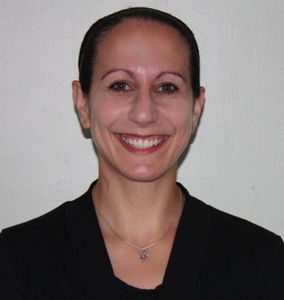Floro J, Dai A, Metzger A, Mora-Martin A, Ganem NJ, Cifuentes D, Wu CS, Dalal J, Lyons SM, Labadorf A, Flynn RL. SDE2 is an essential gene required for ribosome biogenesis and the regulation of alternative splicing. Nucleic Acids Res. 2021 Aug 07. PMID: 34365507
Mason-Osann E, Terranova K, Lupo N, Lock YJ, Carson LM, Flynn RL. RAD54 promotes alternative lengthening of telomeres by mediating branch migration. EMBO Rep. 2020 06 04; 21(6):e49495. PMID: 32337843; PMCID: PMC7271314; DOI: 10.15252/embr.201949495;
Flynn RL, Heaphy CM. Surviving Telomere Attrition with the MiDAS Touch. Trends Genet. 2019 11; 35(11):783-785. PMID: 31526614
Panier S, Maric M, Hewitt G, Mason-Osann E, Gali H, Dai A, Labadorf A, Guervilly JH, Ruis P, Segura-Bayona S, Belan O, Marzec P, Gaillard PHL, Flynn RL, Boulton SJ. SLX4IP Antagonizes Promiscuous BLM Activity during ALT Maintenance. Mol Cell. 2019 10 03; 76(1):27-43.e11. PMID: 31447390; PMCID: PMC6863466; DOI: 10.1016/j.molcel.2019.07.010;
Mason-Osann E, Gali H, Flynn RL. Resolving Roadblocks to Telomere Replication. Methods Mol Biol. 2019; 1999:31-57. PMID: 31127568
Gali H, Mason-Osann E, Flynn RL. Direct Visualization of DNA Replication at Telomeres Using DNA Fiber Combing Combined with Telomere FISH. Methods Mol Biol. 2019; 1999:319-325. PMID: 31127588
Mason-Osann E, Dai A, Floro J, Lock YJ, Reiss M, Gali H, Matschulat A, Labadorf A, Flynn RL. Identification of a novel gene fusion in ALT positive osteosarcoma. Oncotarget. 2018 Aug 28; 9(67):32868-32880. PMID: 30214690; PMCID: PMC6132345; DOI: 10.18632/oncotarget.26029;
Cox KE, Maréchal A, Flynn RL. SMARCAL1 Resolves Replication Stress at ALT Telomeres. Cell Rep. 2016 Feb 9; 14(5):1032-40. PMID: 26832416; PMCID: PMC5051350; DOI: 10.1016/j.celrep.2016.01.011;
Flynn RL, Cox KE, Jeitany M, Wakimoto H, Bryll AR, Ganem NJ, Bersani F, Pineda JR, Suvà ML, Benes CH, Haber DA, Boussin FD, Zou L. Alternative lengthening of telomeres renders cancer cells hypersensitive to ATR inhibitors. Science. 2015 Jan 16; 347(6219):273-7. PMID: 25593184; PMCID: PMC4358324; DOI: 10.1126/science.1257216;
Flynn RL, Cox KE, Jeitany M, Wakimoto H, Bryll AR, Ganem NJ, Bersani F, Pineda JR, Suvà ML, Benes CH, Haber DA, Boussin FD, Zou L. Alternative Lengthening of Telomeres Renders Cancer Cells Hypersensitive to ATR Inhibitors. Science. 2015 Jan 16;347(6219):273-7. PMID: 25593184
Flynn RL, Chang S, Zou L. RPA and POT1: friends or foes at telomeres? Cell Cycle. 2012 Feb 15;11(4):652-7. PMID: 22373525. PMC:3318101.
Flynn RL, Zou L. ATR: a master conductor of cellular responses to DNA replication stress. Trends Biochem Sci. 2011 Mar;36(3):133-40. Review. PMID: 20947357/PMC.
Flynn RL, Centore RC, O’Sullivan RJ, Rai R, Tse A, Songyang Z, Chang S, Karlseder J, Zou L. TERRA and hnRNPA1 orchestrate an RPA-to-POT1 switch on telomeric single-stranded DNA. Nature. 2011 Mar 24;471 (7339):532-6. PMID: 21399625. PMC:3078637 .
Centore RC, Havens CG, Manning AL, Li JM, Flynn RL,Tse A, Jin J, Dyson NJ, Walter JC, Zou L. CRL4(Cdt2)-mediated destruction of the histone methyltransferase Set8 prevents premature chromatin compaction in S phase. Mol Cell. 2010 Oct 8;40(1):22-33. PMID: 20932472. .
Flynn RL, Zou L. Oligonucleotide/oligosaccharide-binding fold proteins: a growing family of genome Guardians. Crit Rev Biochem Mol Biol. 2010 Aug;45(4):266-75. Review. PMID: 20515430/PMC2906097.
Xie J, *Flynn RL,Wang S, Peng M, Guillemette S, Rooney T, Cantor SB. Targeting the FANCJ-BRCA1 interaction promotes a switch from recombination to poleta-dependent bypass. Oncogene. 2010 Apr 29;29(17):2499-508. PMID: 20173781/PMC2909592*co-first author.
Litman R, Gupta R, Brosh RM Jr, Cantor SB. BRCA-FA pathway as a target for anti-tumor drugs. Anticancer Agents Med Chem. (2008) 8(4):426-30. Review. PMID:18473727/PMC2564853.
Peng M, *Litman R, Xie J, Sharma S, Brosh RM Jr, Cantor SB. The FANCJ/MutLalpha interaction is required for correction of the cross-link response in FA-J cells. EMBO J. 2007 Jul 11;26(13):3238-49. PMID: 17581638. *Co-First Author
Peng M, *Litman R, Jin Z, Fong G, Cantor SB. BACH1 is a DNA repair protein supporting BRCA1 damage response. Oncogene. 2006 Apr 6;25(15):2245-53. PMID: 16462773Abstract. *Co-First Author
Litman R, Peng M, Jin Z, Zhang F, Zhang J, Powell S, Andreassen PR, Cantor SB. BACH1 is critical for homologous recombination and appears to be the Fanconi anemia gene product FANCJ. Cancer Cell. 2005 Sep;8(3):255-65. PMID: 16153896.
 Associate Professor of Pharmacology and Medicine, Section of Hematology and Medical Oncology
Associate Professor of Pharmacology and Medicine, Section of Hematology and Medical Oncology